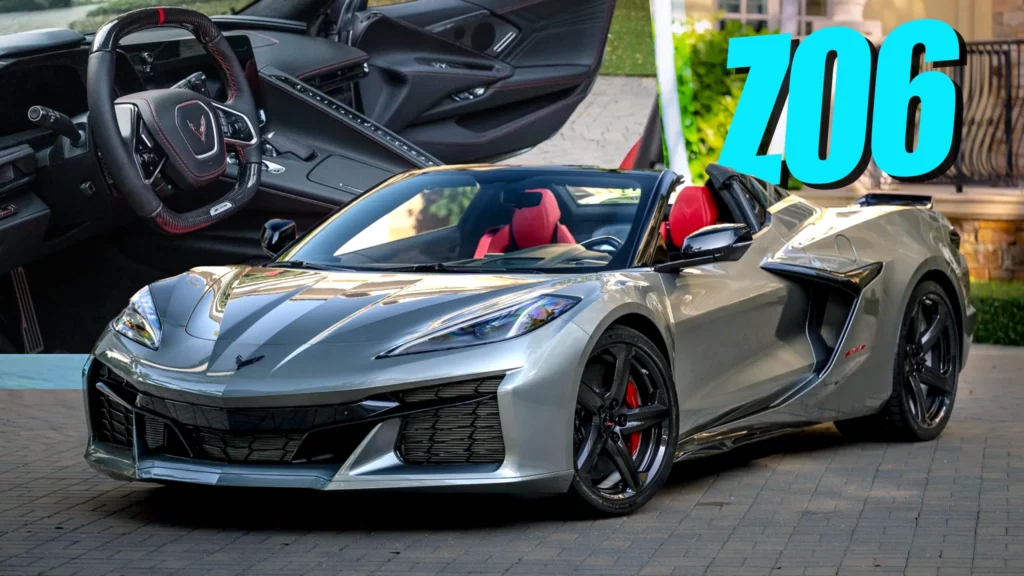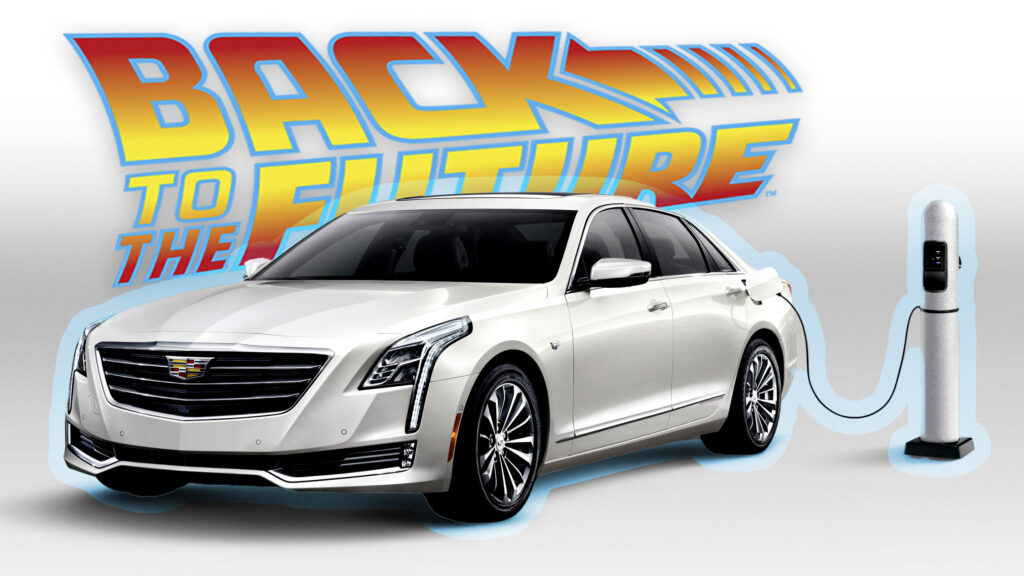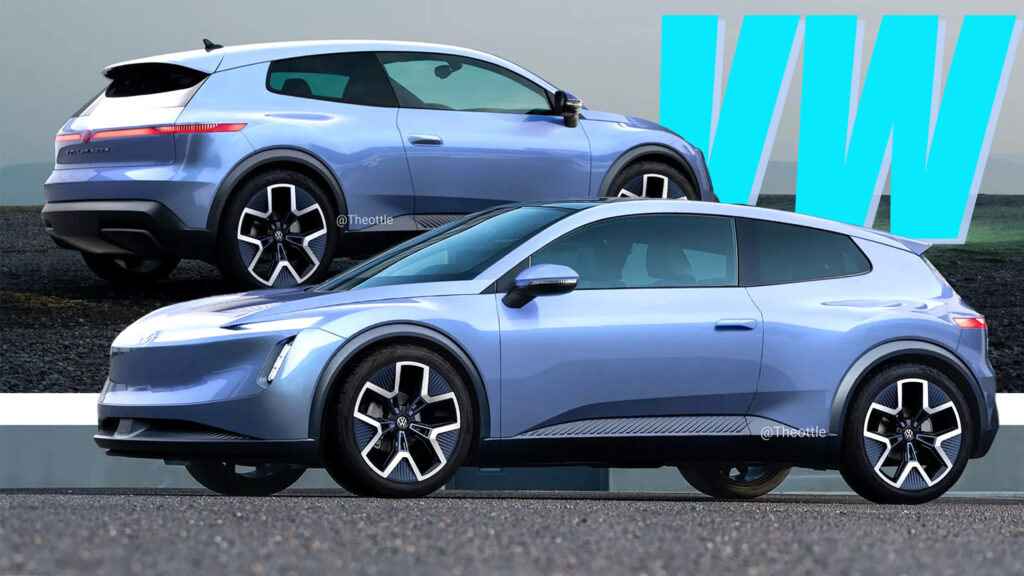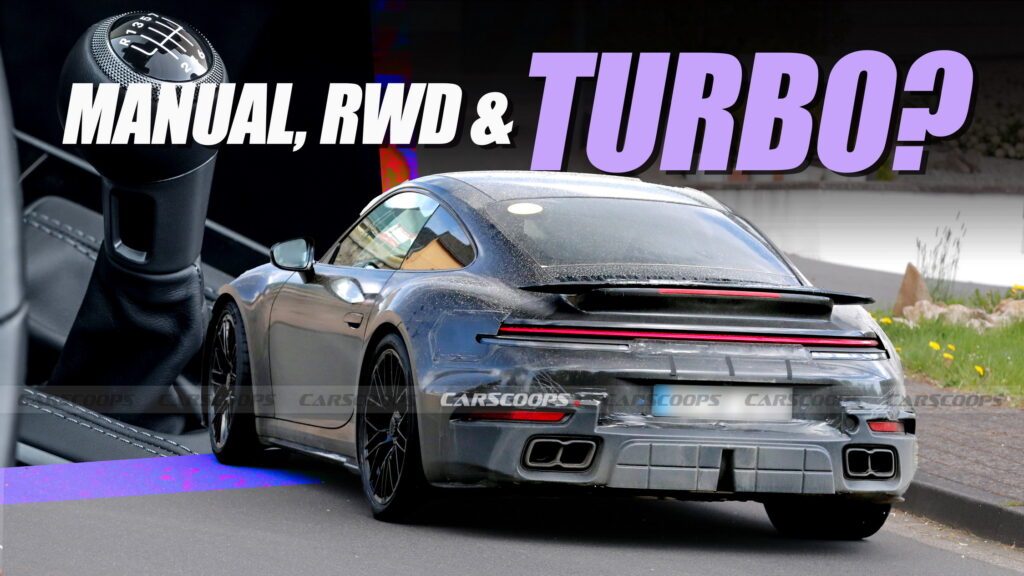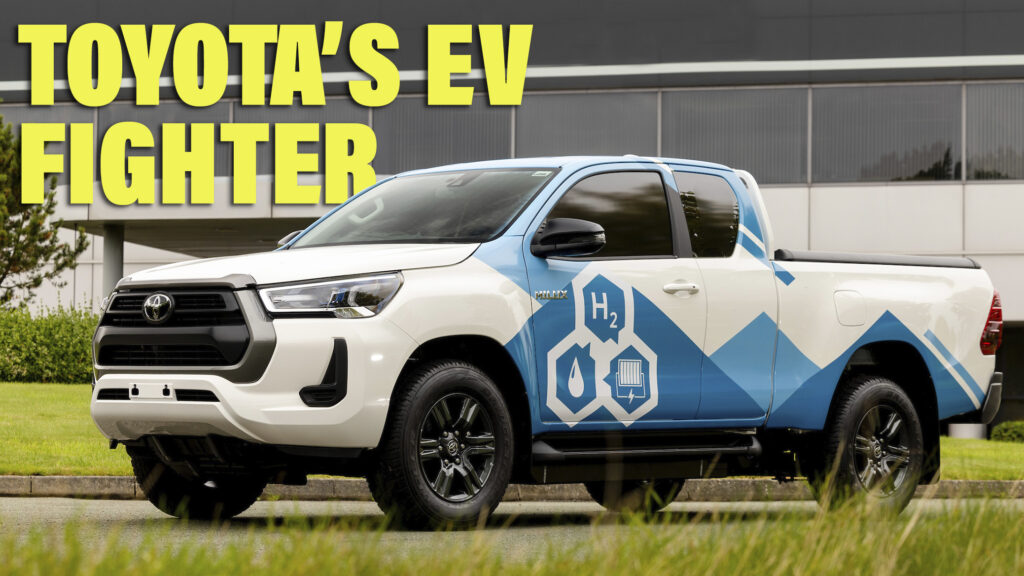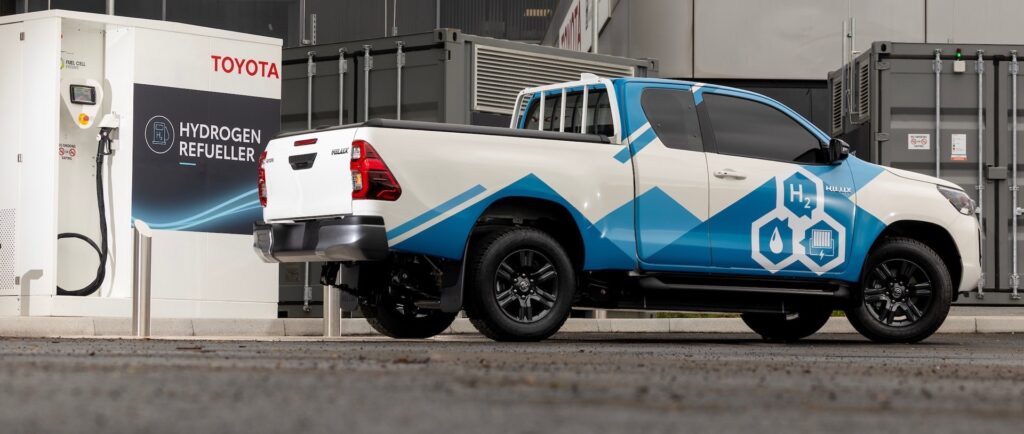Toyota has introduced a new hydrogen-powered Hilux pickup to the world. The truck uses the core components from the company’s commercially available Mirai hydrogen-powered car, and has a range of over 600 km (373 miles) between fill-ups. The feasibility of a production model is now being examined. If given the green light, we can expect a hydrogen-powered Hilux in showrooms before 2030.
At a time when carmakers and world governments are moving us ever closer to a world dominated by electric-only automotive offerings, Toyota has stood out as a voice against total reliance on BEVs. Chief in the criticism was Akio Toyoda, Toyota chairman and former CEO, who claimed that he was among the “silent majority” of those in the automotive industry questioning whether electric vehicles are the only way forward.
Toyoda’s words may have led to some voting against him as chairman, and Toyota has since previewed a gamut of new EV concepts. But with the hydrogen Hilux, the Japanese carmaker continues to send a message that it’s continuing its exploration of alternative fuels.
Related: Rowan Atkinson Gets A Taste Of Toyota’s Hydrogen-Fuelled GR Yaris
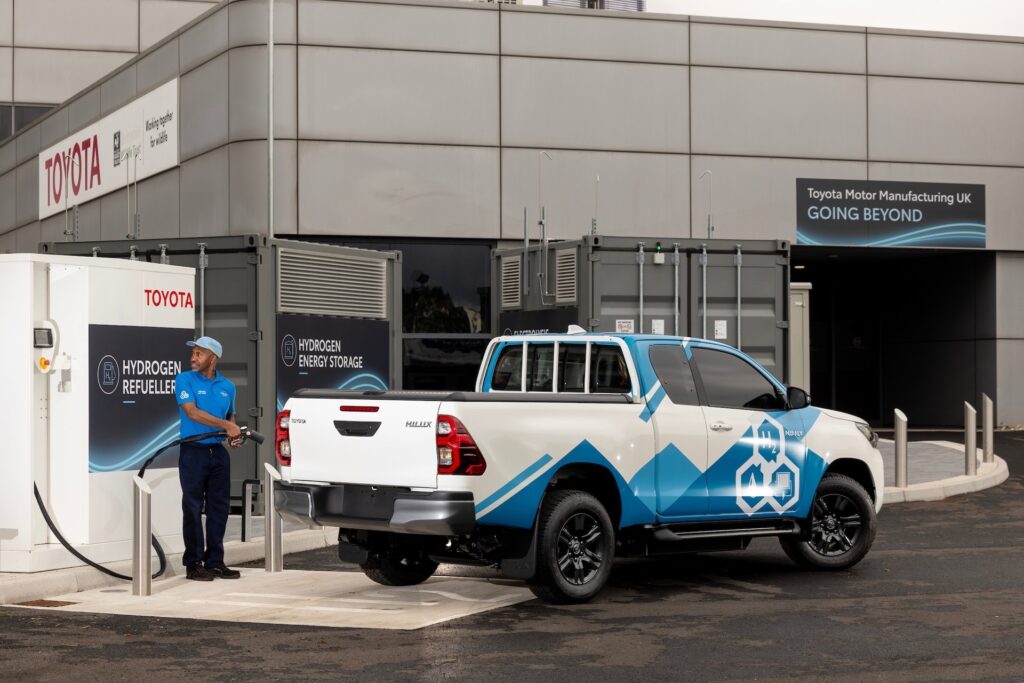
The prototype Hilux uses three high-pressure fuel tanks to store the hydrogen, which sends energy to a hybrid battery mounted underneath the rear load tray to avoid encroaching on passenger space. Unlike the hydrogen-fuelled GR Yaris shown off at Goodwood, the Hilux generates electricity from a fuel cell rather than burning hydrogen in a more conventional internal combustion engine.
Toyota’s engineers are quick to mention that the Hilux’s range of 373 miles (600 km) is “significantly further than might be achieved with a battery electric system.” However, some EV manufacturers may take issue with that statement – particularly Rivian, who claims their R1T Max Pack battery variant is capable of 400 miles (644 km) on a single charge.
Regardless, the Hilux is the latest example of hydrogen power potentially being a solution to more commercial applications. Similarly, JCB recently demonstrated its own “hydromod,” fitting one of its hydrogen engines to a converted Mercedes Sprinter van.
The hydrogen-powered Hilux was developed as a feasibility study between Toyota Motor UK and Toyota Motor Europe, funded by the UK Government. Other partners included Ricardo, ETL, D2H Advanced Technologies, and Thatcham Research, with additional support from Toyota Motor Corporation (TMC).



